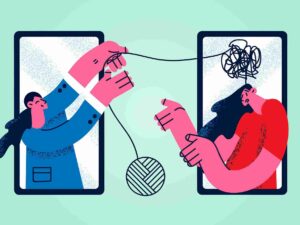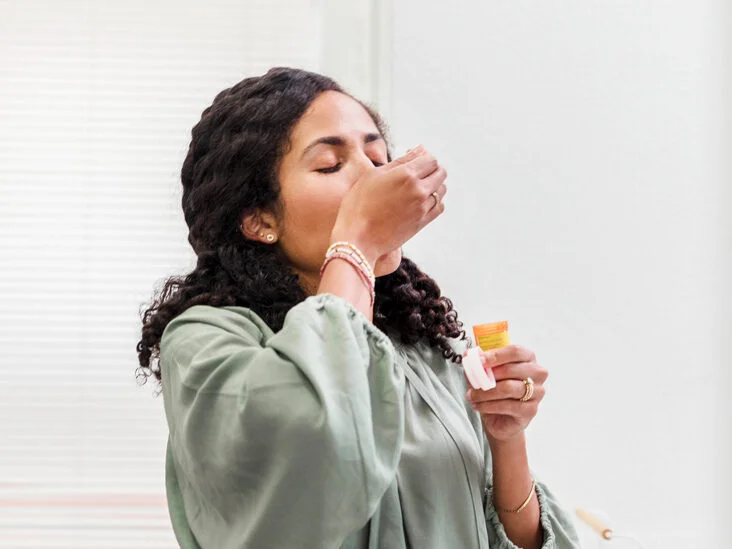Depression can be a debilitating condition, and for some people, traditional antidepressant medications may not be enough. In these cases, doctors may recommend combination therapy, which involves taking two or more medications to treat depression. This can be an effective way to achieve remission from depression symptoms. In this blog post, we will discuss the basics of combination therapy for depression and what you need to know about it.
Contents
What Is Combination Therapy In Depression?
 Combination therapy in depression is a treatment approach that involves the use of multiple therapeutic interventions and/or medications to treat the symptoms of depression. This approach is often used when traditional treatments, such as medications or psychotherapy alone, have not been effective.
Combination therapy in depression is a treatment approach that involves the use of multiple therapeutic interventions and/or medications to treat the symptoms of depression. This approach is often used when traditional treatments, such as medications or psychotherapy alone, have not been effective.
The goal of combination therapy is to increase the effectiveness of each individual treatment while reducing side effects and improving overall outcomes. By combining multiple therapies, depression symptoms can be addressed from different angles, helping to reduce their severity faster.
What Are The Most Common Combination Therapy For Depression?
If you are treating depression, then there are some most common combination therapy options. These are psychotherapy and medication, alternative treatments such as exercise, nutrition, massage therapy, acupuncture, meditation, and mindfulness-based stress reduction.
Let’s discuss all combination therapy for depression that can be beneficial for you.
Psychotherapy and Medication
Psychotherapy is the most often recommended treatment for depression, involving talk therapy with a mental health professional. This form of therapy helps people to understand their thoughts, feelings, and behavior patterns so they can address them in healthier ways. When combined with medication, psychotherapy can help individuals gain the tools they need to effectively manage their depression.
Another common approach is cognitive behavioral therapy (CBT), a type of psychotherapy that helps people identify and change negative or distorted thinking patterns associated with depression. CBT also teaches problem-solving skills and encourages individuals to take actionable steps toward managing their mental health condition.
Both psychotherapy and medication can be used to treat depression, but each person responds differently. It’s important to speak with a mental health professional about the best approach for you.
Alternative Treatments
There are also many alternative treatments that can help manage symptoms of depression. Exercise, nutrition, massage therapy, acupuncture, meditation, and mindfulness-based stress reduction are all considered alternative treatments. Each of these therapies can help to reduce stress and improve mood, and they can be used in combination with psychotherapy and medication, or on their own.
Exercise is a great way to reduce stress, boost energy levels, and increase self-esteem. Eating healthy foods that are rich in vitamins and minerals can also help balance mood. Additionally, massage therapy, acupuncture, meditation, and mindfulness-based stress reduction can all be beneficial for managing depression symptoms.
All in all, these combination therapies can be beneficial for treating depression. Speak with a mental health professional to determine which approach is right for you. With the help of appropriate treatment, it is possible to manage symptoms of depression and fully recover from this condition.
What Different Therapy Options Can Be Combined For Depression?
 There are numerous therapy types, and each one has its own benefits and drawbacks. Combining therapies can often enhance the effectiveness of each. But it is important to discuss this with a healthcare professional before pursuing more than one type of therapy at a time.
There are numerous therapy types, and each one has its own benefits and drawbacks. Combining therapies can often enhance the effectiveness of each. But it is important to discuss this with a healthcare professional before pursuing more than one type of therapy at a time.
Here are some most common therapies that can be combined for depression:
1. Cognitive Behavioral Therapy (CBT): CBT is a form of psychotherapy that focuses on identifying and changing negative thinking and behavior patterns to help people manage their emotions better. It often combines elements from both cognitive therapy and behavioral therapy, helping individuals identify and challenge their core beliefs, as well as modify their behaviors.
2. Interpersonal Therapy (IPT): IPT is a form of psychotherapy that focuses on relationships and communication patterns, helping individuals understand how their interactions with others affect their moods. It can help people identify areas where they need to improve their communication skills to better interact with others.
3. Mindfulness-Based Cognitive Therapy (MBCT): MBCT is a form of psychotherapy that combines elements from both CBT and mindfulness practices. It helps individuals become aware of their thoughts, feelings, and behaviors in order to better manage them. For instance, it teaches people to become more aware of their negative thought patterns and be able to respond to them in a healthier way.
4. Dialectical Behavior Therapy (DBT): DBT is a form of psychotherapy that combines elements from CBT, IPT, and mindfulness practices. It helps individuals identify and manage extreme emotions, such as rage and hopelessness. It teaches them to focus on the present moment, learn to tolerate distress, and create healthier relationships with others.
By combining different types of therapy, individuals can gain a better understanding of their depression and more effectively manage symptoms. However, it is important to consult with a healthcare provider before trying any combination of therapies in order to determine the best approach for your specific needs.
Why Consider Combination Therapy For Depression?
Combination therapy for depression is becoming an increasingly popular option among those who are looking to better manage their mental health. While medication and psychotherapy are both effective treatments for depression, combining them can offer a more comprehensive approach that may help patients get even better results.
The following are the top 5 reasons that combination therapy for depression can be beneficial:
Addresses both psychological and biological issues
Combining medication with psychotherapy helps to treat both the physical and mental components associated with depression. Medication addresses any chemical imbalances in the brain that are causing the symptoms. While psychotherapy helps address any underlying psychological issues or unresolved conflicts that are at the root of the depression.
Helps to prevent relapse
Using a combination of medications and psychotherapy helps reduce the likelihood of relapsing into depression after treatment has been completed. This is because both treatments work together to provide better long-term results.
Decreases symptoms more quickly
Combination therapy for depression can help alleviate symptoms more quickly than either medication or psychotherapy alone. This is because the combination of treatments addresses both the physical and psychological aspects of depression, leading to faster results.
Increases patient self-awareness
The combination of medications and psychotherapy helps patients to become more aware of their emotions and thoughts, which can in turn lead to greater self-awareness. This can be incredibly useful in helping to identify any triggers that may lead to a relapse in depression symptoms.
Provides more support
Finally, the combination of medications and psychotherapy offers greater support for the patient. This is because there are two professionals involved, who can both provide valuable insight into how to best manage depression symptoms. Having this additional support can be incredibly beneficial in helping patients stay on track with their treatment plans.
So you can see why combination therapy for depression can be an effective and beneficial option to consider. It offers a comprehensive approach to treating depression, helping patients to address any underlying biological or psychological issues that may be contributing to their symptoms.
Plus, it comes with the added bonus of having two professionals involved in the treatment process. That increases support and makes it easier to stay on track with the treatment plan.
Are There Any Disadvantages To Consider?
 Generally, combination therapy for depression is proven to be effective. However, there are potential risks and side effects associated with combining two or more medications. Some of these might include:
Generally, combination therapy for depression is proven to be effective. However, there are potential risks and side effects associated with combining two or more medications. Some of these might include:
1. Increased risk of drug interactions: All medications have the potential to interact with one another and cause serious side effects. Therefore, it is important for individuals taking multiple medications for depression to discuss any possible interactions with their doctor or pharmacist.
2. Risk of overmedication: Combining two or more medications can increase the risk of overmedication. This can lead to a variety of issues, including extreme drowsiness or sleepiness, confusion, slowed reflexes, and/or impaired physical and mental functioning.
3. Increased risk of side effects: Combining medications can also increase the likelihood of experiencing side effects from either medication. Individuals may need to work closely with their doctor to monitor side effects and adjust dosages as needed.
It is important for individuals considering combination therapy for depression to discuss the risks and benefits with their doctor in order to make an informed decision about treatment. Additionally, individuals should always be honest with their doctor about all other medications they are taking so that any potential interactions can be addressed.
Conclusion
In a nutshell, combination therapy for depression is recently proven to be very effective. The use of both psychotherapy and medication can provide quick relief from depression symptoms. And greater long-term stability than either method on its own. Even though it is not always the right approach for everyone, combination therapy should be considered as an option in any situation where evidence suggests that it would be beneficial.
However, do not forget that the most important factor in treating depression is to find a professional who can provide the best care for your needs. It is important to talk with your doctor about any concerns you may have and make sure you get the best combination of treatments.
For more information, please contact MantraCare. Depression is a mental illness characterized by persistent feelings of sadness, hopelessness, and loss of interest in daily activities. If you have any queries regarding Online Depression Counseling experienced therapists at MantraCare can help: Book a trial Depression Therapy session


